
Byron Bay: A Coastal Gem in Australia
Byron Bay, a small coastal town in New South Wales, Australia, is a haven for tourists seeking a blend of natural beauty, vibrant culture, and relaxation. Known for its stunning beaches, lush hinterland, and laid-back vibe, it offers an unforgettable experience for travelers of all kinds. One of the main attractions in Byron Bay is its pristine beaches. Main Beach, Clarkes Beach, and Wategos Beach are perfect for swimming, surfing, and soaking up the sun. The iconic Cape Byron Lighthouse, perched on the easternmost point of the Australian mainland, provides panoramic views of the Pacific Ocean and is a prime spot for whale watching during migration season. Byron Bay is also famous for its eclectic culture and artistic community. The town is filled with boutique shops, art galleries, and craft markets where you can find unique souvenirs and local products. Foodies will delight in the diverse culinary scene, with numerous cafes, restaurants, and health food stores offering everything from fresh seafood to organic, farm-to-table dishes. Nature lovers will appreciate the many outdoor activities available in and around Byron Bay. Take a hike in the nearby rainforests, explore the waterfalls in the Nightcap National Park, or simply enjoy a leisurely bike ride along the coastline. Whether you're an adventure seeker or looking to unwind, Byron Bay has something for everyone.
Local tips in Byron Bay
- Visit the Cape Byron Lighthouse early in the morning to catch a breathtaking sunrise.
- Check the local markets for artisanal goods and fresh produce; the Byron Farmers Market is held every Thursday.
- Book accommodations well in advance, especially during peak seasons like summer and festival periods.
- Explore the hinterland by taking a day trip to the nearby town of Bangalow for charming cafes and shops.
- Keep an eye on the tide charts if you plan to go surfing; local surf schools can provide lessons for beginners.
Byron Bay: A Coastal Gem in Australia
Byron Bay, a small coastal town in New South Wales, Australia, is a haven for tourists seeking a blend of natural beauty, vibrant culture, and relaxation. Known for its stunning beaches, lush hinterland, and laid-back vibe, it offers an unforgettable experience for travelers of all kinds. One of the main attractions in Byron Bay is its pristine beaches. Main Beach, Clarkes Beach, and Wategos Beach are perfect for swimming, surfing, and soaking up the sun. The iconic Cape Byron Lighthouse, perched on the easternmost point of the Australian mainland, provides panoramic views of the Pacific Ocean and is a prime spot for whale watching during migration season. Byron Bay is also famous for its eclectic culture and artistic community. The town is filled with boutique shops, art galleries, and craft markets where you can find unique souvenirs and local products. Foodies will delight in the diverse culinary scene, with numerous cafes, restaurants, and health food stores offering everything from fresh seafood to organic, farm-to-table dishes. Nature lovers will appreciate the many outdoor activities available in and around Byron Bay. Take a hike in the nearby rainforests, explore the waterfalls in the Nightcap National Park, or simply enjoy a leisurely bike ride along the coastline. Whether you're an adventure seeker or looking to unwind, Byron Bay has something for everyone.
When is the best time to go to Byron Bay?
Iconic landmarks you can’t miss
Cape Byron Lighthouse
Discover the breathtaking views and rich history at Cape Byron Lighthouse, the easternmost point of Australia in Byron Bay.

Cape Byron State Conservation Area
Explore breathtaking landscapes and rich history at Cape Byron State Conservation Area, the standout natural gem of Byron Bay, New South Wales.
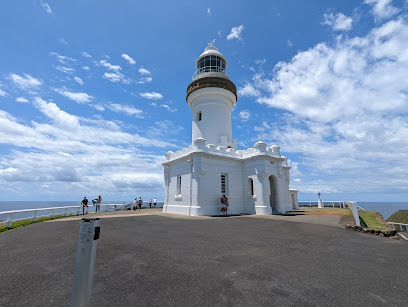
Crystal Castle & Shambhala Gardens
Experience the tranquility of Crystal Castle & Shambhala Gardens, where nature meets the mystical beauty of crystals in a breathtaking botanical setting.
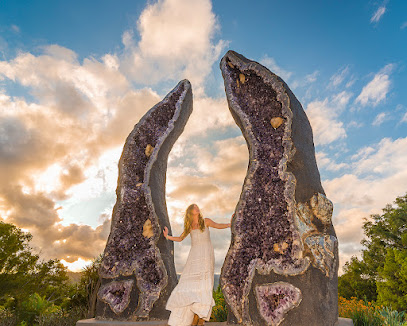
The Balcony Bar & Oyster Co.
Experience the best of coastal dining at The Balcony Bar & Oyster Co. in Byron Bay, featuring fresh oysters and crafted cocktails amid stunning ocean views.
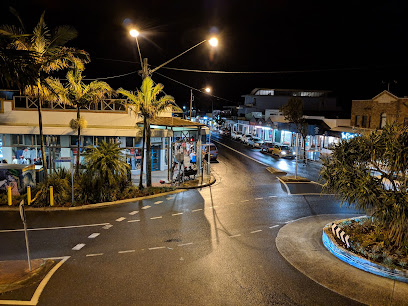
Light Years - Byron Bay
Discover the vibrant flavors of Asia at Light Years in Byron Bay, where culinary creativity meets a lively cocktail bar atmosphere.
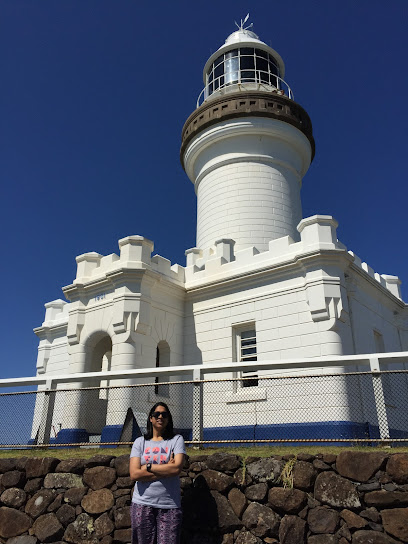
Arts Factory Lodge
Discover the vibrant spirit of Byron Bay at Arts Factory Lodge, where adventure meets relaxation in a unique hostel experience.
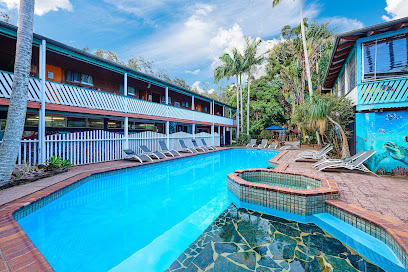
Treehouse Byron Bay
Discover the perfect blend of fresh cuisine and vibrant atmosphere at Treehouse Byron Bay, where every meal is a taste of the tropics.

No Bones Byron Bay
Experience the vibrant flavors of No Bones Byron Bay, a must-visit vegan restaurant and cocktail bar that redefines plant-based dining in a stunning coastal town.
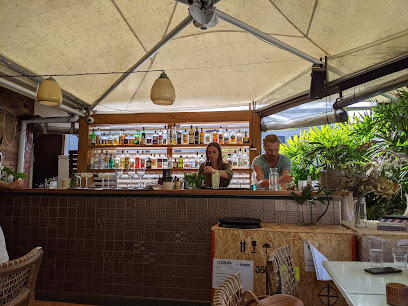
Discovery Parks - Byron Bay
Discover the ultimate holiday experience at Discovery Parks - Byron Bay, where nature meets relaxation and adventure awaits at every turn.

Beach Byron Bay
Experience the perfect blend of modern Australian cuisine and breathtaking ocean views at Beach Byron Bay, the ultimate dining destination.
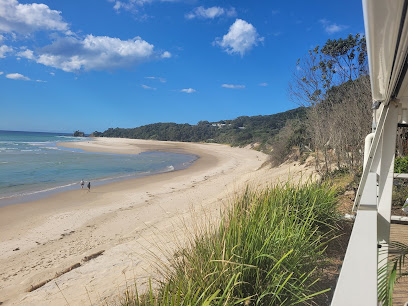
Most Easterly Point of the Australian Mainland
Discover breathtaking views and rich biodiversity at the Most Easterly Point of the Australian Mainland in Byron Bay, a must-visit coastal gem.
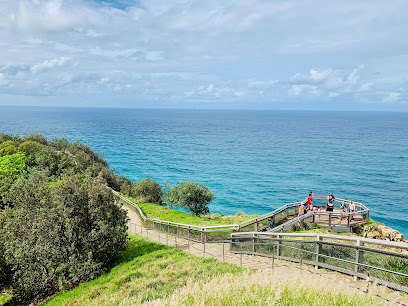
Out Of The Blue Adventures
Discover the awe-inspiring world of whales at Out Of The Blue Adventures in Byron Bay - an unforgettable eco-friendly experience awaits you.
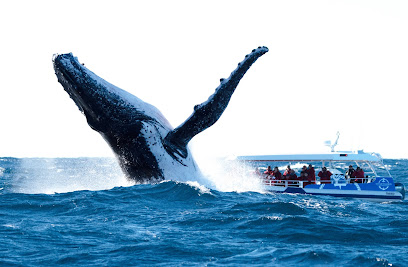
Byron Markets
Explore Byron Markets for a vibrant mix of artisan goods, fresh local produce, and live music in the heart of Byron Bay.
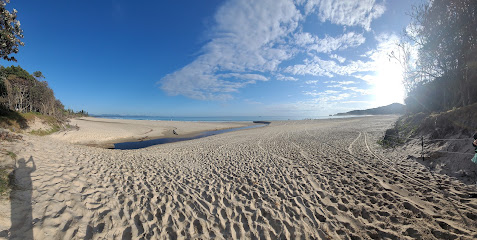
Wake Up! Byron Bay
Experience the best of Byron Bay at Wake Up! Byron Bay, where comfort meets adventure in a vibrant backpacker community.
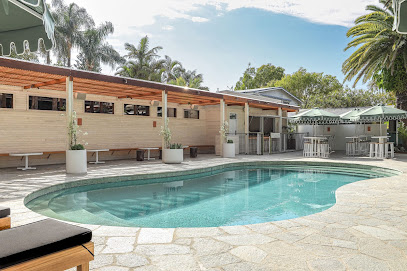
Cyprus Tree
Experience the essence of the Mediterranean at Cyprus Tree in Byron Bay, where fresh ingredients meet authentic flavors in a warm and inviting setting.
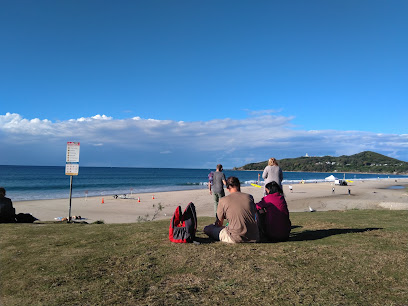
Unmissable attractions to see
Cape Byron Lighthouse
Iconic lighthouse on Australia's easternmost point, offering maritime history, panoramic views, and whale watching opportunities.
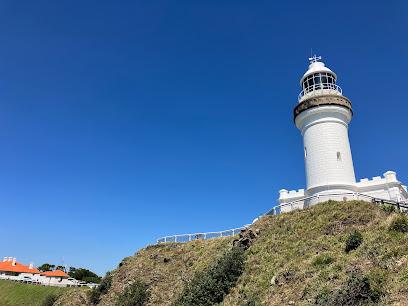
The Farm Byron Bay
Experience sustainable farming, local produce, and family fun at The Farm Byron Bay, a unique agri-tourism destination in Ewingsdale, NSW.
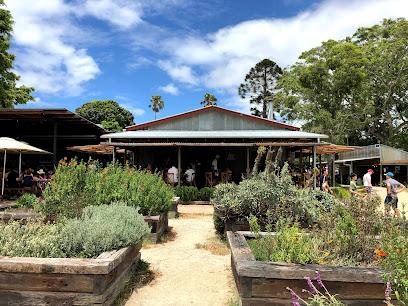
Walgun Cape Byron State Conservation Area
Discover stunning coastal walks, rich Aboriginal culture, and Australia's most easterly point at Cape Byron State Conservation Area.
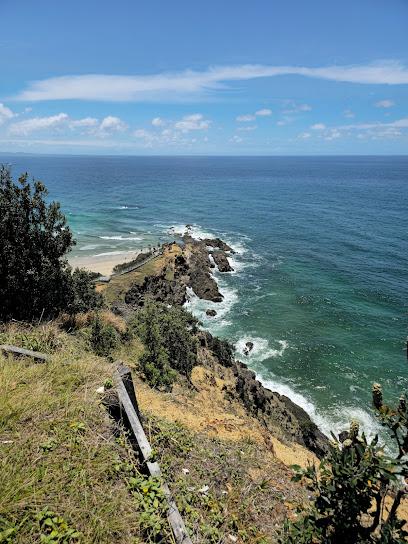
Tropical Fruit World
Explore the exotic flavors and vibrant landscapes of Tropical Fruit World, a unique farm experience in Duranbah, NSW, perfect for all fruit lovers.
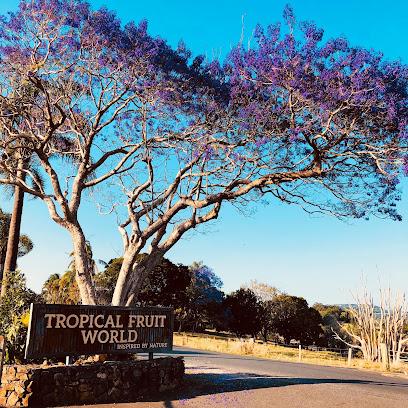
Byron Bay Wildlife Sanctuary
Experience the magic of Australia's wildlife at Byron Bay Wildlife Sanctuary – a perfect blend of adventure, education, and conservation.
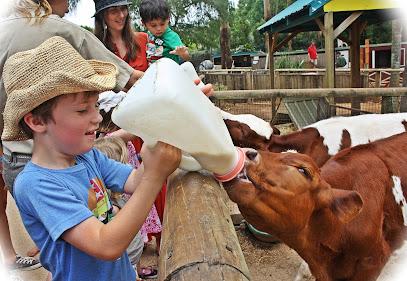
Tweed Regional Gallery & Margaret Olley Art Centre
Discover the artistic heart of New South Wales at the Tweed Regional Gallery & Margaret Olley Art Centre, where culture meets stunning natural beauty.
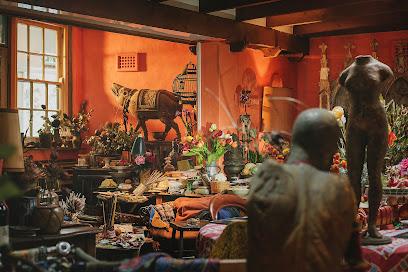
Minyon Falls Lookout
Discover the enchanting beauty of Minyon Falls Lookout, a scenic gem in Whian Whian, New South Wales, perfect for nature lovers and adventurers alike.
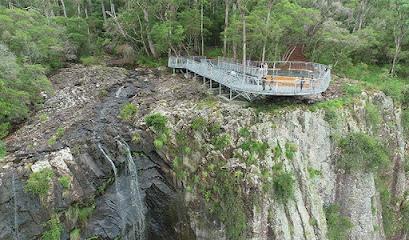
Pat Morton Lookout
Breathtaking coastal views from Lennox Head. Whale watching, surfing, and hang gliding at this iconic lookout. A must-see destination!
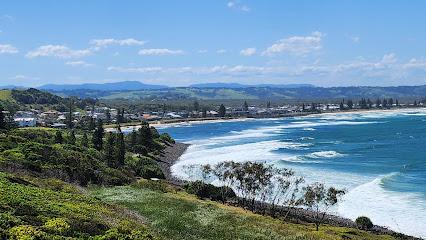
Stone & Wood Brewery Byron Bay
Experience the best of craft brewing at Stone & Wood Brewery in Byron Bay, where local flavors and vibrant atmosphere meet.
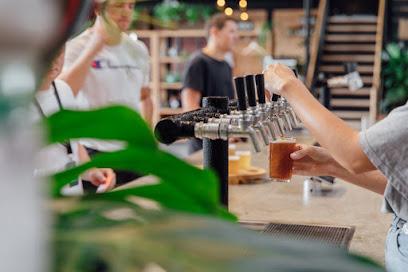
North Wall Ballina
Experience the breathtaking coastal views and vibrant atmosphere at North Wall Ballina, a must-visit tourist attraction in New South Wales.
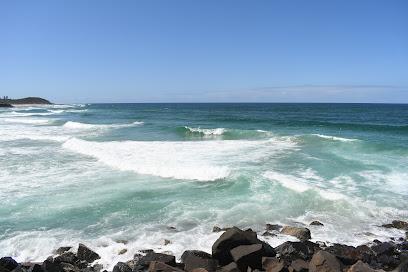
Out Of The Blue Adventures
Experience Byron Bay's marine wonders with expert-led whale watching, snorkeling, and river cruises. Eco-friendly adventures await!
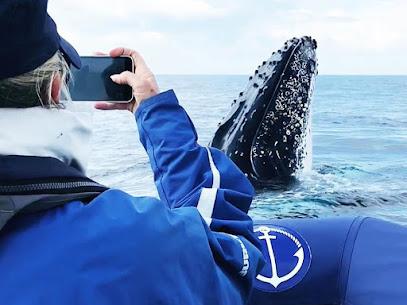
Husk Farm Distillery
Experience paddock-to-bottle distilling at Husk Farm, home to Ink Gin and single-estate rum in the scenic Tweed Valley.
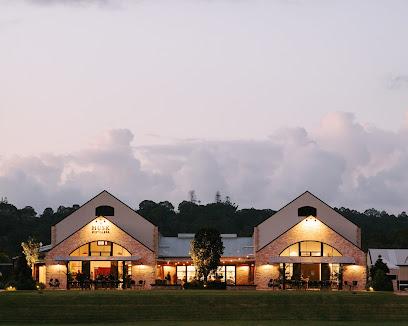
Soul Surf School
Discover the joy of surfing at Soul Surf School in Byron Bay, where expert instructors guide you to ride the waves in stunning coastal surroundings.
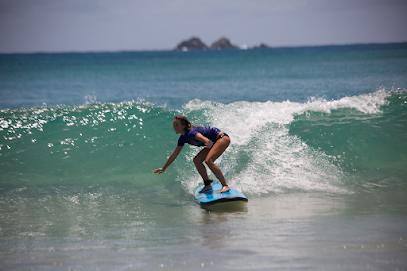
Nightcap National Park
Experience the lush rainforests, stunning waterfalls, and diverse wildlife of Nightcap National Park, a breathtaking destination in New South Wales.
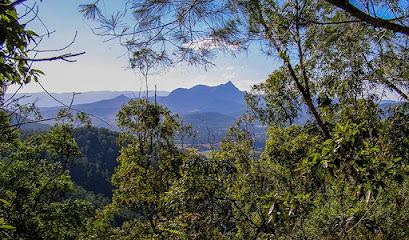
Lets Go Surfing Byron Bay
Learn to surf at Byron Bay's Main Beach with experienced instructors. Fun, safe lessons for all levels!
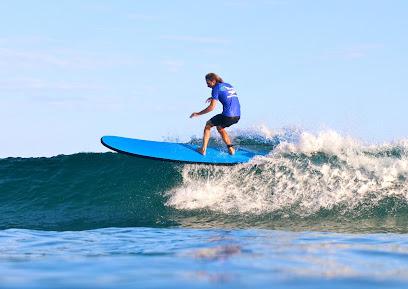
Essential places to dine
The Balcony Bar & Oyster Co.
Experience coastal elegance at The Balcony Bar & Oyster Co., where fresh oysters meet handcrafted cocktails in Byron Bay's vibrant atmosphere.
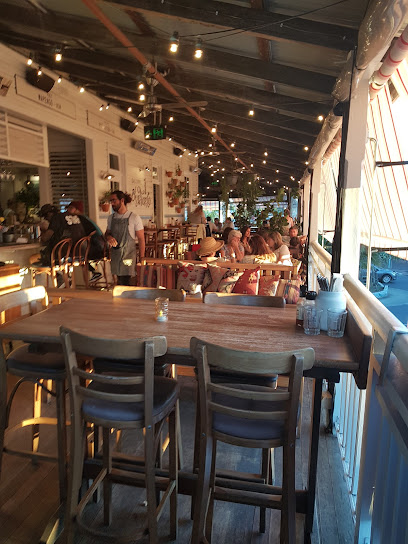
Miss Margarita
Experience vibrant flavors at Miss Margarita in Byron Bay - where authentic Mexican cuisine meets a lively atmosphere.
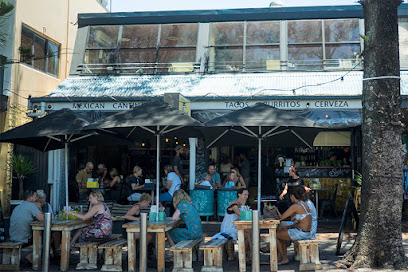
Bayleaf Cafe
Discover the culinary delights of Bayleaf Cafe in Byron Bay - where fresh ingredients meet exceptional coffee in a charming setting.
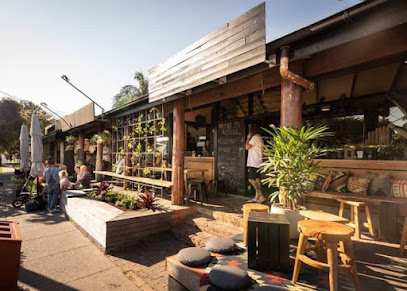
Light Years - Byron Bay
Savor the best of Asian cuisine at Light Years - Byron Bay, where flavor meets creativity in every dish.
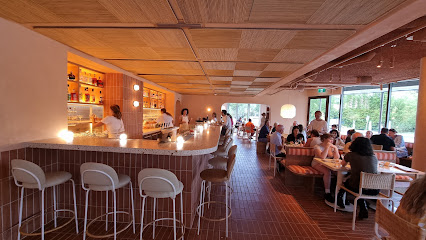
Fishheads Restaurant & Takeaway Byron Bay
Discover Byron Bay's premier seafood destination at Fishheads Restaurant & Takeaway - Fresh flavors, stunning views, and a relaxed coastal vibe await.
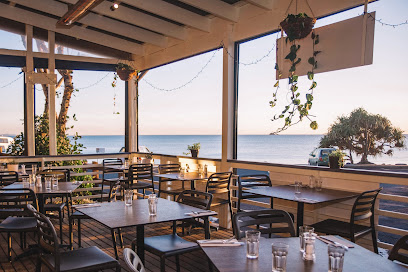
The Mez Club
Discover The Mez Club in Byron Bay - A Mediterranean restaurant offering exquisite dishes & vibrant atmosphere near stunning beaches.
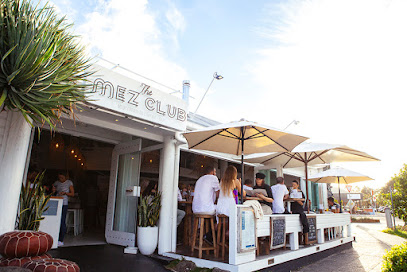
Treehouse Byron Bay
Discover Treehouse Byron Bay: A Culinary Delight Blending Fresh Local Flavors in an Inviting Atmosphere.
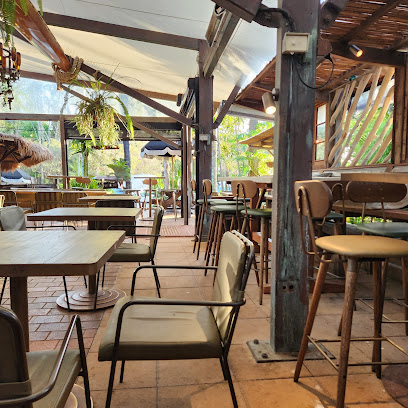
No Bones Byron Bay
Experience the vibrant flavors of vegan cuisine at No Bones Byron Bay - where innovative dishes meet sustainable practices in a lively atmosphere.
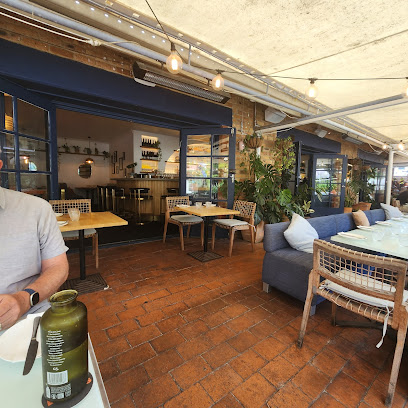
Bang Bang Byron Bay
Experience the vibrant flavors of Asia at Bang Bang Byron Bay – where culinary art meets exquisite taste in a lively setting.
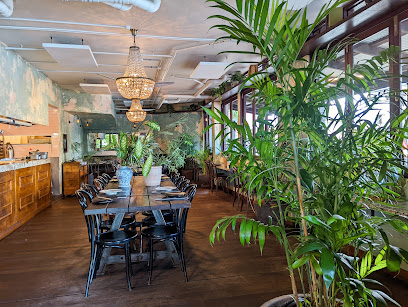
Chihuahua Taqueria
Experience vibrant Mexican cuisine at Chihuahua Taqueria in Byron Bay, where every bite takes you on a flavorful journey.
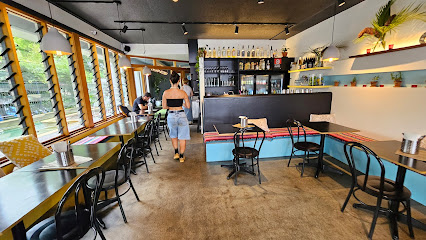
Main Street Burger Bar
Indulge in gourmet burgers at Main Street Burger Bar in Byron Bay - where taste meets relaxation in a vibrant coastal setting.
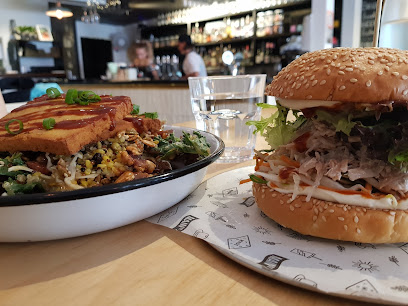
Betty's Burgers
Experience delectable gourmet burgers in the heart of Byron Bay at Betty's Burgers—where flavor meets relaxation.
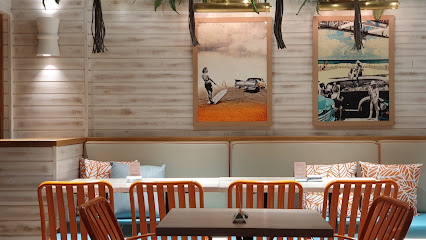
Beach Byron Bay
Experience exquisite modern Australian cuisine with stunning ocean views at Beach Byron Bay—where every meal is a celebration of local flavors.
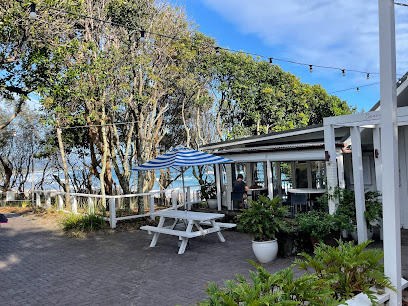
Ember Byron Bay
Discover Ember Byron Bay - A culinary haven serving premium steaks and seafood in a chic coastal setting.
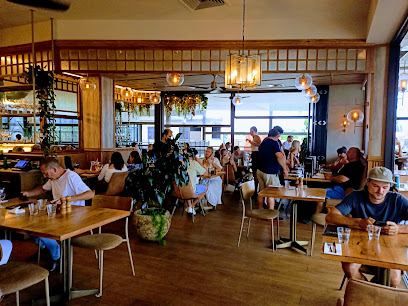
Three Blue Ducks Byron Bay
Discover culinary excellence at Three Blue Ducks Byron Bay - where fresh ingredients meet relaxed coastal vibes.
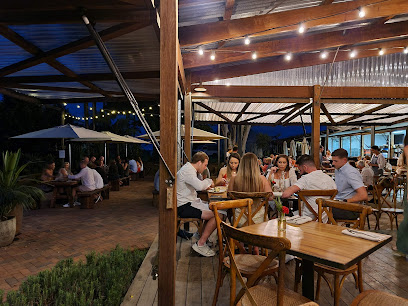
Markets, malls and hidden boutiques
The Byron Bay General Store
Discover the flavors of Byron Bay at The Byron Bay General Store, where fresh ingredients meet community spirit in a cozy café setting.
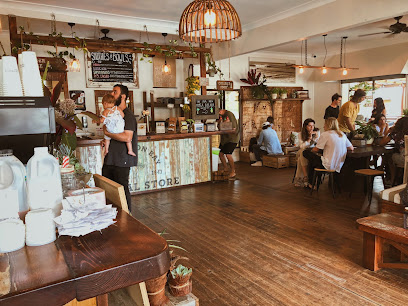
Byron Corner Store
Experience the essence of Byron Bay at Byron Corner Store, where exceptional coffee meets a cozy café atmosphere.
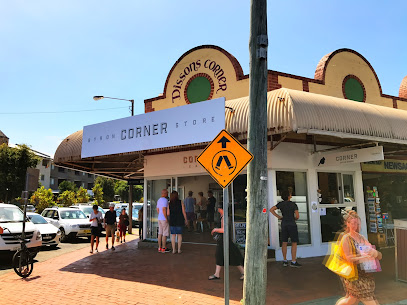
Arnhem Clothing Byron Bay Boutique
Discover bohemian fashion at Arnhem Clothing Boutique in Byron Bay, offering unique apparel and accessories for every occasion.
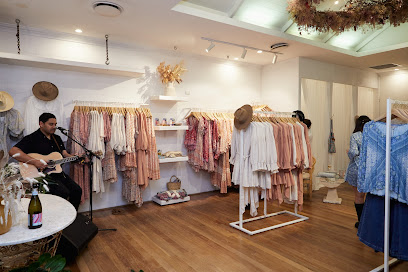
AFENDS HQ & Archive Store
Explore AFENDS HQ & Archive Store in Byron Bay for sustainable fashion, surf culture, and a cozy café experience.

Byron Bay Fair
Explore Byron Bay Fair, a vibrant shopping mall featuring local crafts, delicious eateries, and a taste of Byron Bay's unique culture.
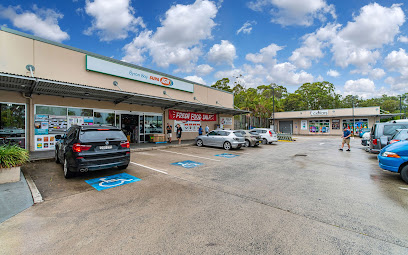
Spell Byron Bay Store
Explore Spell Byron Bay Store – a boutique offering bohemian clothing and accessories that reflect the vibrant spirit of Byron Bay's coastal lifestyle.
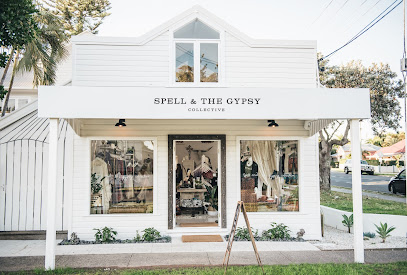
Thrills Co
Explore Thrills Co in Byron Bay for unique clothing that captures the essence of coastal living and local culture.
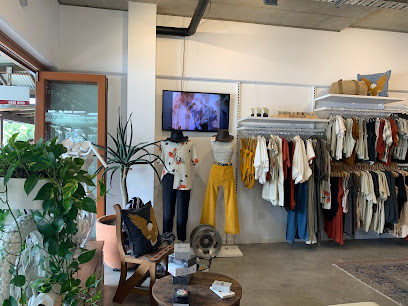
Soulife
Explore Soulife in Byron Bay for an eclectic mix of gifts, including aromatherapy, music, and unique treasures that celebrate local creativity.
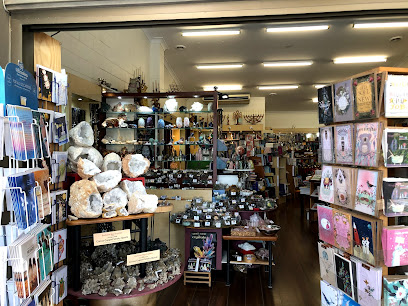
Etnix
Explore Etnix in Byron Bay for unique fashion finds that embody the spirit of the coast, perfect for every style and occasion.
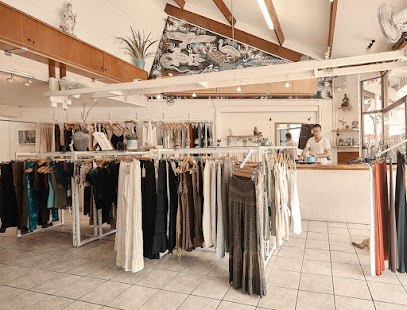
Rainbow Shop
Explore the whimsical Rainbow Shop in Byron Bay for unique gifts and quirky treasures that capture the spirit of this vibrant coastal town.
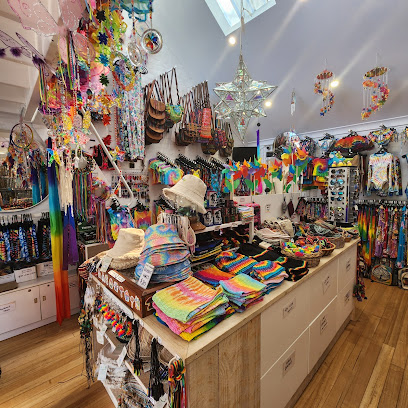
Tigani Lux
Explore the vibrant styles of Tigani Lux, a boutique in Byron Bay offering unique women's clothing and accessories from local designers.
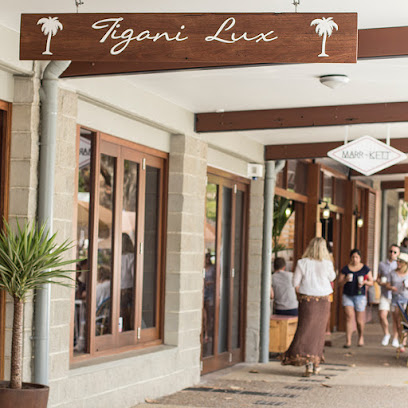
Mimosa Byron Bay
Experience the vibrant fashion scene at Mimosa Byron Bay, a boutique offering unique women's clothing, jewelry, and accessories in a charming coastal setting.
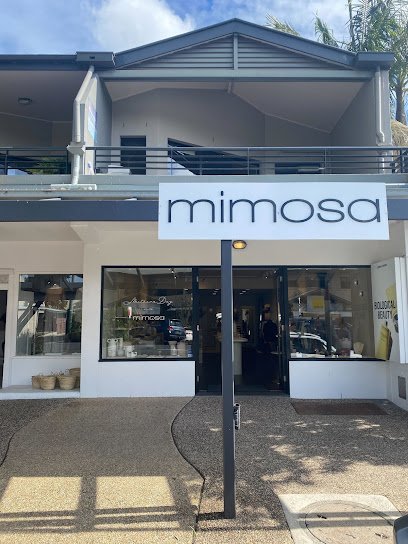
Trinkets The Bead Shop
Explore the vibrant craftsmanship of Trinkets The Bead Shop in Byron Bay, your destination for unique beads and handmade treasures.
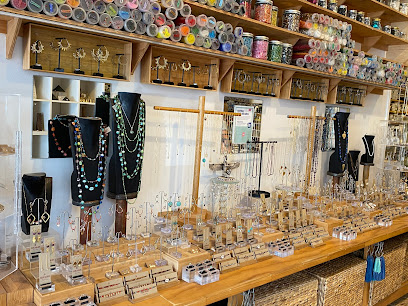
Unplugged Byron Bay
Explore Unplugged Byron Bay, a charming boutique featuring a unique collection of vintage clothing and accessories in the heart of Byron Bay.
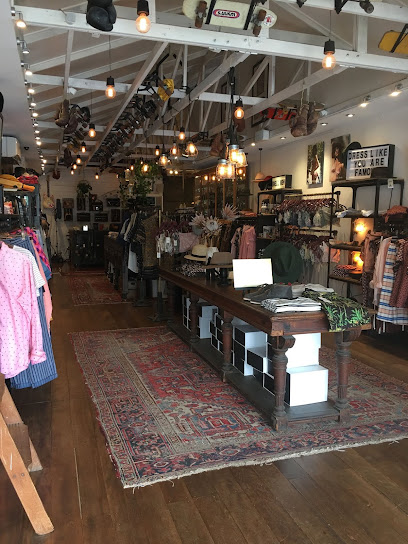
Ghanda Clothing Byron Bay
Explore Ghanda Clothing Byron Bay for trendy surf-inspired apparel and accessories that capture the essence of coastal living.
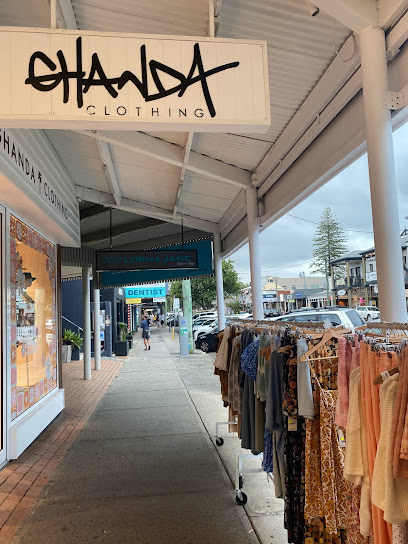
Essential bars & hidden hideouts
Beach Hotel, Byron Bay
Experience the lively atmosphere and stunning coastal views at the Beach Hotel, Byron Bay, your perfect spot for relaxation and entertainment.
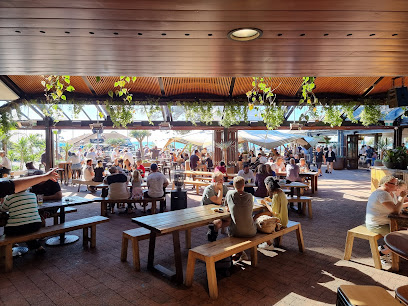
The Balcony Bar & Oyster Co.
Savor the freshest oysters and innovative cocktails at The Balcony Bar & Oyster Co. in Byron Bay, where coastal charm meets culinary excellence.
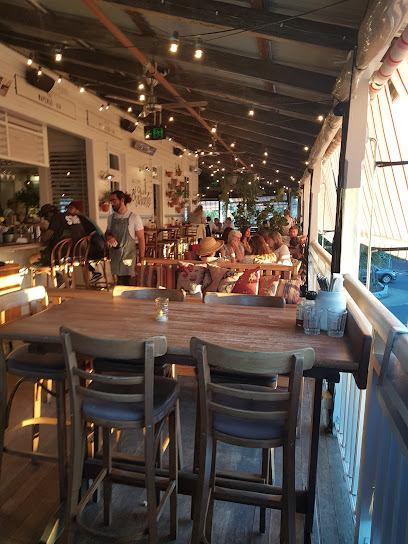
Light Years - Byron Bay
Experience the vibrant fusion of Asian cuisine and cocktails at Light Years in Byron Bay, a must-visit for food enthusiasts.
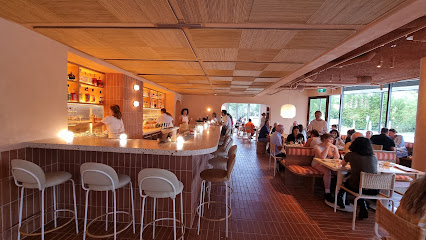
The Mez Club
Experience Mediterranean dining at The Mez Club in Byron Bay, where vibrant flavors meet a lively atmosphere for an unforgettable culinary adventure.
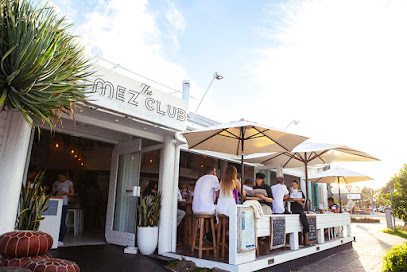
Treehouse Byron Bay
Explore Treehouse Byron Bay, a lively bar and café that offers delicious food, artisanal coffee, and refreshing cocktails in a vibrant atmosphere.
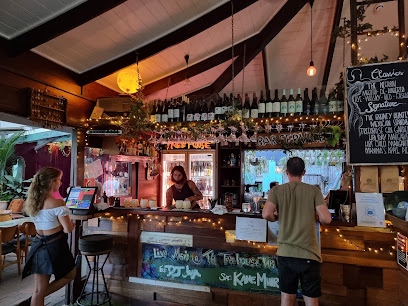
Main Street Burger Bar
Experience the best of Byron Bay's burger culture at Main Street Burger Bar, where gourmet flavors meet a laid-back atmosphere.
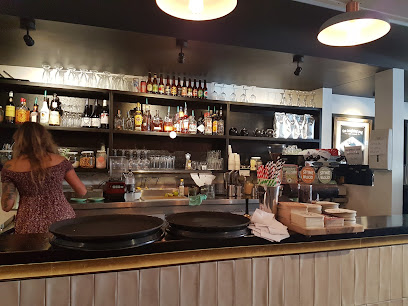
Railway Friendly Bar
Discover the lively atmosphere of Railway Friendly Bar in Byron Bay, where unique decor meets refreshing drinks and vibrant live music.
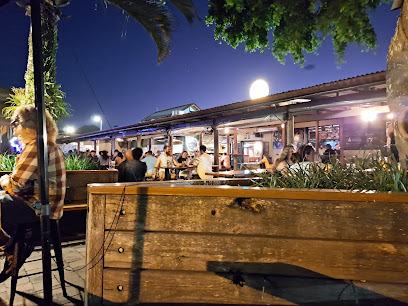
Ember Byron Bay
Discover Ember Byron Bay, where exceptional cuisine meets a vibrant atmosphere in the heart of Byron Bay, perfect for any occasion.
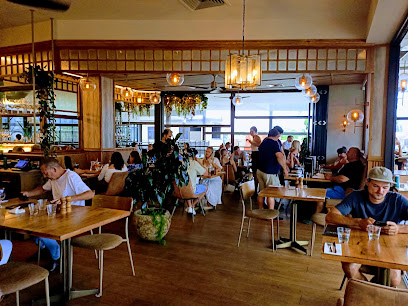
The Northern
Experience the vibrant atmosphere at The Northern, Byron Bay's premier pub and live music venue, perfect for unforgettable nights out.
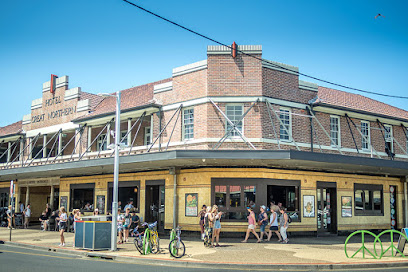
Loft Byron Bay
Experience the vibrant cocktail culture at Loft Byron Bay, where innovative drinks meet a lively atmosphere in the heart of New South Wales.
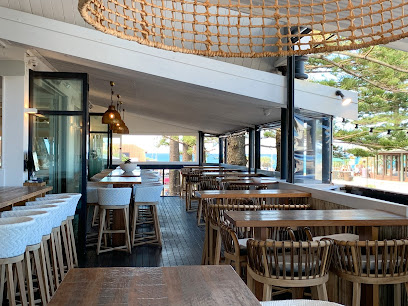
North Byron Hotel
Experience the vibrant atmosphere of North Byron Hotel, a bistro with a lively beer garden and a well-stocked liquor store in beautiful Byron Bay.
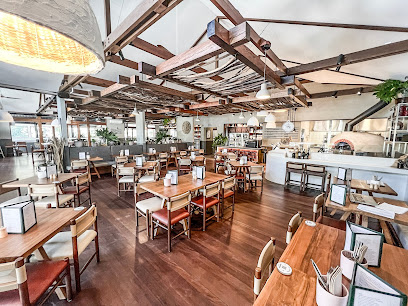
Moonlight Japanese
Discover the essence of Japanese culinary brilliance at Moonlight Japanese in Byron Bay, where grilled delights meet a vibrant atmosphere.
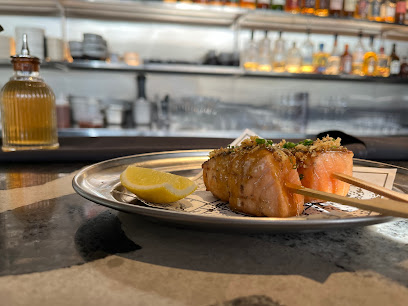
The Roadhouse Byron Bay
Discover the vibrant flavors at The Roadhouse Byron Bay, your go-to spot for breakfast, artisanal coffee, and exquisite wines in a charming coastal setting.
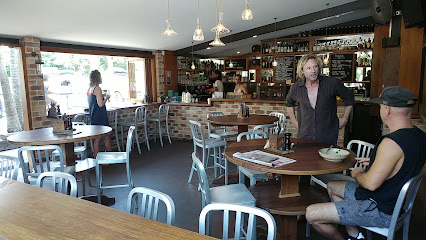
Casa Luna
Experience the vibrant fusion of dining and nightlife at Casa Luna, Byron Bay's premier restaurant and cocktail bar.
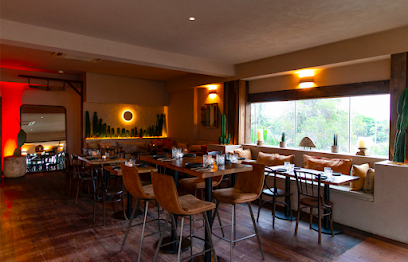
Local Phrases
-
- HelloG'day
[G'day] - GoodbyeCatch ya later
[Catch ya later] - YesYeah
[Yeah] - NoNah
[Nah] - Please/You're welcomeNo worries
[No worries] - Thank youCheers
[Cheers] - Excuse me/SorrySorry mate
[Sorry mate] - How are you?How's it going?
[How's it going?] - Fine. And you?Good. You?
[Good. You?] - Do you speak English?You speak English?
[You speak English?] - I don't understandI'm lost
[I'm lost]
- HelloG'day
-
- I'd like to see the menu, pleaseCan I have a squiz at the menu, mate?
[Can I have a squiz at the menu, mate?] - I don't eat meatI'm vego
[I'm vego] - Cheers!Cheers!
[Cheers!] - I would like to pay, pleaseCan I pay now, mate?
[Can I pay now, mate?]
- I'd like to see the menu, pleaseCan I have a squiz at the menu, mate?
-
- Help!Help!
[Help!] - Go away!Bugger off!
[Bugger off!] - Call the Police!Get the cops!
[Get the cops!] - Call a doctor!Get a doc!
[Get a doc!] - I'm lostI'm lost
[I'm lost] - I'm illI'm crook
[I'm crook]
- Help!Help!
-
- I'd like to buy...I'm keen to buy...
[I'm keen to buy...] - I'm just lookingJust having a squiz
[Just having a squiz] - How much is it?How much?
[How much?] - That's too expensiveBit steep, mate
[Bit steep, mate] - Can you lower the price?Any chance of a discount?
[Any chance of a discount?]
- I'd like to buy...I'm keen to buy...
-
- What time is it?What's the time?
[What's the time?] - It's one o'clockIt's one
[It's one] - Half past (10)Half past ten
[Half past ten] - MorningMornin'
[Mornin'] - AfternoonArvo
[Arvo] - EveningEvenin'
[Evenin'] - YesterdayYesty
[Yesty] - TodayToday
[Today] - TomorrowTomoz
[Tomoz] - 1One
[One] - 2Two
[Two] - 3Three
[Three] - 4Four
[Four] - 5Five
[Five] - 6Six
[Six] - 7Seven
[Seven] - 8Eight
[Eight] - 9Nine
[Nine] - 10Ten
[Ten]
- What time is it?What's the time?
-
- Where's a/the...?Where's the...?
[Where's the...?] - What's the address?What's the addy?
[What's the addy?] - Can you show me (on the map)?Can you point it out?
[Can you point it out?] - When's the next (bus)?When's the next bus?
[When's the next bus?] - A ticket (to ....)A ticket to ...
[A ticket to ...]
- Where's a/the...?Where's the...?
History of Byron Bay
-
Before European settlement, the Byron Bay area was inhabited by the Arakwal people of the Bundjalung Nation. The Arakwal people have lived in the region for thousands of years, with a deep connection to the land and sea. Their rich cultural heritage includes traditional practices, stories, and a profound understanding of the local environment.
-
In 1770, Captain James Cook became the first European to discover the Byron Bay area during his journey on the HMS Endeavour. He named Cape Byron after Vice-Admiral John Byron, who was known as 'Foul-Weather Jack.' This marked the beginning of European interest in the region.
-
During the 19th century, Byron Bay became a hub for the timber industry, particularly prized for its red cedar. The demand for timber led to extensive logging and the establishment of sawmills in the area. This period saw the arrival of European settlers and significant changes to the landscape and local ecosystems.
-
In 1901, the Cape Byron Lighthouse was completed and began operation. This iconic structure was built to help guide ships navigating the treacherous waters off the coast. The lighthouse remains a significant historical landmark and a popular tourist attraction, offering panoramic views of the ocean and surrounding area.
-
Byron Bay was once a bustling whaling station from the 1950s until the practice was banned in the 1960s. The remnants of this industry can still be seen at the old whaling station site. The transition from whaling to conservation marked a significant shift in the town's relationship with marine life.
-
In the 1960s and 70s, Byron Bay became a haven for surfers and counterculture enthusiasts. The town's laid-back atmosphere and pristine beaches attracted people seeking an alternative lifestyle. This period helped shape Byron Bay's reputation as a relaxed, bohemian destination.
-
Byron Bay has a strong tradition of environmental conservation. Efforts to protect the local environment have led to the establishment of several nature reserves and marine parks. The community is actively involved in preserving the area's natural beauty and promoting sustainable practices.
-
In recent decades, Byron Bay has become one of Australia's premier tourist destinations. Its stunning beaches, vibrant arts scene, and eclectic community continue to attract visitors from around the world. Despite the influx of tourists, Byron Bay maintains its unique charm and commitment to sustainability.
Byron Bay Essentials
-
Byron Bay is located in New South Wales, Australia. The closest airport is Ballina Byron Gateway Airport (BNK), which is about a 30-minute drive from Byron Bay. Alternatively, Gold Coast Airport (OOL) is around a 1-hour drive away. From these airports, you can rent a car, take a shuttle bus, or use a taxi service to reach Byron Bay. For those preferring to drive, it is approximately an 8-hour drive from Sydney and a 2-hour drive from Brisbane.
-
Byron Bay is a small town, and many attractions are within walking distance. For longer trips, the Byron Bay Bus Service and local taxis are available. Bike rentals are popular for getting around town and exploring nearby areas. Car rentals are also a convenient option for those wanting to explore the surrounding regions at their own pace. Ride-sharing services like Uber are available but may be less frequent than in larger cities.
-
The official currency is the Australian Dollar (AUD). Credit and debit cards are widely accepted in most establishments, including cafes, restaurants, and shops. ATMs are readily available throughout Byron Bay. It's advisable to carry some cash for smaller markets, local vendors, and areas where card facilities might not be available.
-
Byron Bay is generally a safe destination for tourists. However, like any tourist destination, it is important to take standard precautions. Avoid walking alone at night in isolated areas and always keep an eye on your belongings, especially in crowded places. There are no specific high-crime areas targeting tourists, but petty theft can occur, so always stay vigilant.
-
In case of emergency, dial 000 for police, fire, or medical assistance. The Byron Central Hospital provides medical services, and there are several pharmacies in town for minor health issues. It’s recommended to have travel insurance that covers medical emergencies. The local police station is available for non-emergency assistance.
-
Fashion: Do wear casual and comfortable clothing suitable for the beach. Avoid overly revealing swimwear when not at the beach. Religion: Do respect local traditions, though Byron Bay is generally secular and open-minded. Public Transport: Do use the local bus service and be courteous to drivers and fellow passengers. Don't expect 24/7 service; check schedules in advance. Greetings: Do greet people with a friendly 'hello' or 'hi.' Australians are generally informal. Eating & Drinking: Do try local foods and seafood. Don't litter; always dispose of your trash properly.
-
To experience Byron Bay like a local, visit the Byron Farmers Market held every Thursday morning for fresh produce and local crafts. Enjoy the sunrise or sunset at the Cape Byron Lighthouse, the most easterly point of the Australian mainland. Participate in local events and festivals, such as the Byron Bay Bluesfest. For a unique experience, take a surf lesson at one of the many surf schools or explore the hinterland's waterfalls and hiking trails.
Trending Landmark in Byron Bay
-
Cape Byron Lighthouse
-
Cape Byron State Conservation Area
-
Crystal Castle & Shambhala Gardens
-
The Balcony Bar & Oyster Co.
-
Light Years - Byron Bay
-
Arts Factory Lodge
-
Treehouse Byron Bay
-
No Bones Byron Bay
-
Discovery Parks - Byron Bay
-
Beach Byron Bay
-
Most Easterly Point of the Australian Mainland
-
Out Of The Blue Adventures
-
Byron Markets
-
Wake Up! Byron Bay
-
Cyprus Tree
Nearby Cities to Byron Bay
-
Things To Do in Gold Coast
-
Things To Do in Surfers Paradise
-
Things To Do in Brisbane
-
Things To Do in Noosa
-
Things To Do in Sydney
-
Things To Do in Canberra
-
Things To Do in Airlie Beach
-
Things To Do in The Whitsundays
-
Things To Do in Melbourne
-
Things To Do in Burnt Pine
-
Things To Do in Phillip Island
-
Things To Do in Kingston
-
Things To Do in Cascade
-
Things To Do in Ball Bay
-
Things To Do in Bourail













